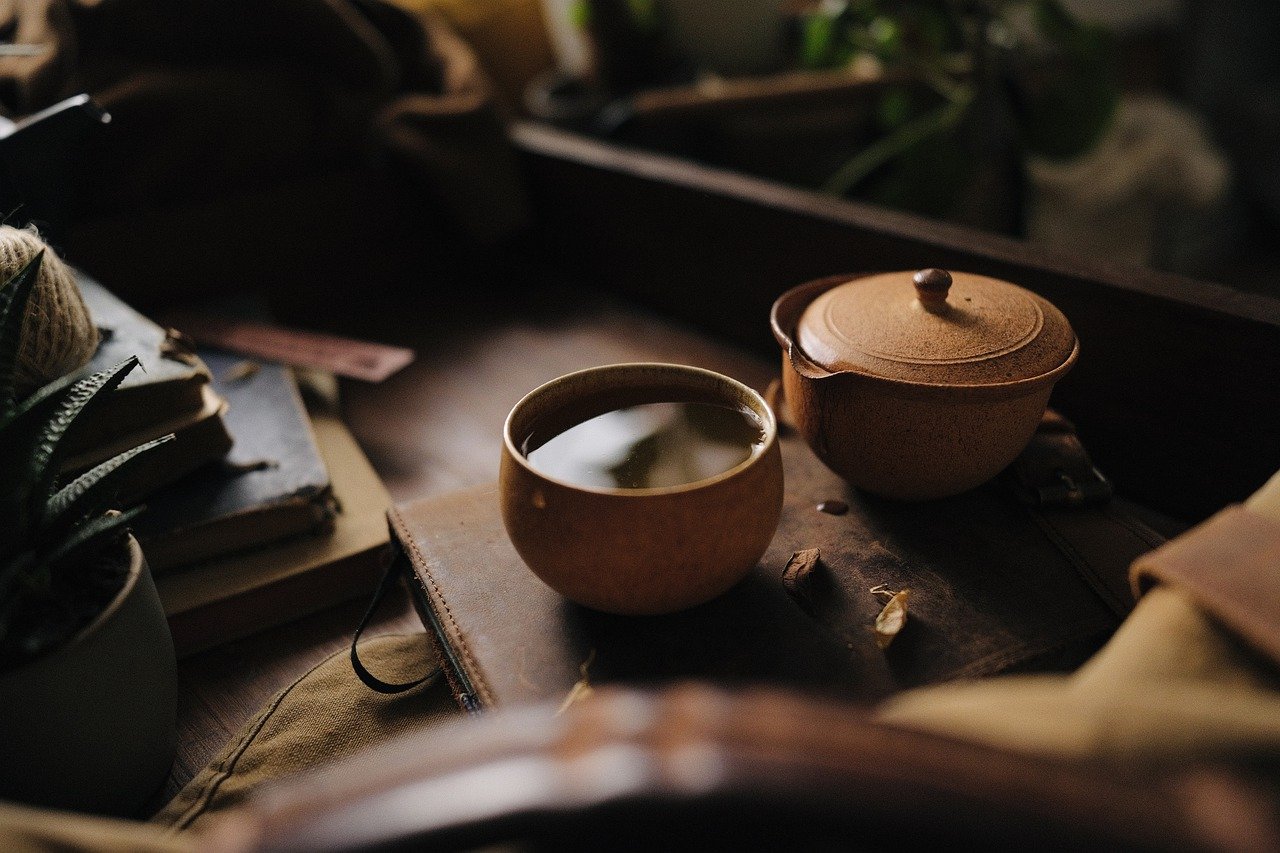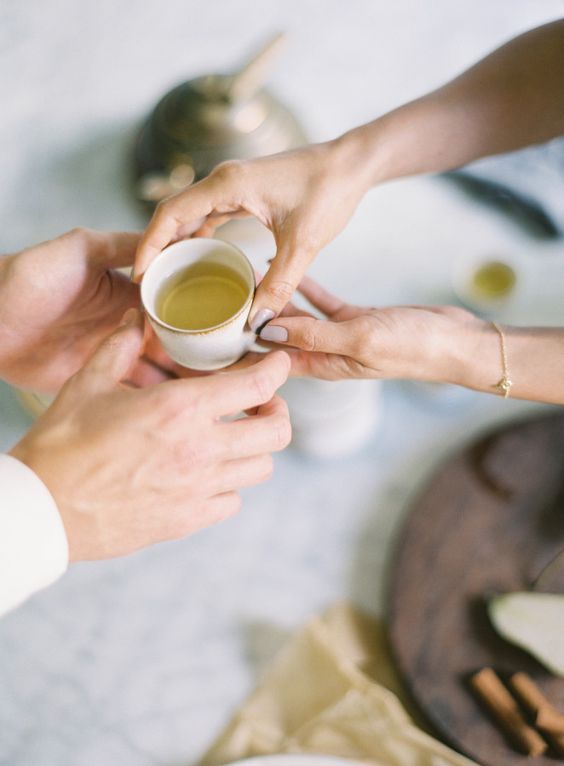Tea has always been more than just a beverage in Chinese culture.it's an art, a philosophy, and a way of life. As the steaming mists rise from the delicate porcelain, one can't help but be drawn into a world where time slows down and the hustle and bustle of the outside world fades away. The aroma of the Tieguanyin tea fills the air, a testament to the craftsmanship that goes into creating such a rich and complex flavor profile.

Holding the teacup, the warmth of the liquid cradles the hand, a comforting sensation that speaks of the care and attention given to the brewing process. The first sip is a dance of flavors, an initial bite of bitterness that challenges the palate, only to be followed by a symphony of sweetness that lingers and evolves with each passing moment. This interplay of taste is akin to the complexities of life itself, a reminder that the most profound joys often follow the most challenging times.
Watching the delicate leaves swirl within the teacup is like witnessing a silent ballet, each leaf a dancer moving gracefully to the rhythm of the water's warmth. They expand and soften, releasing their essence into the brew, much like how experiences shape and define our character over time. The tea, once a simple plant, has undergone a transformation, much like the journey of self-discovery and growth that each of us embarks upon.
My grandfather had a deep affinity for tea, often spending afternoons in the garden, steeping and sipping in solitude. As a child, I would join him, my young palate struggling to appreciate the depth of the tea's flavor. I remember the puzzled looks I would give, unable to comprehend the joy he found in something that, to me, seemed so bitter. With a gentle smile, he would explain that tea is not just about taste, but about the experience, the journey of the senses, and the quiet companionship it provides.

Now, as an adult, I find myself understanding the wisdom he imparted. Tea has become a solace, a way to mark the passage of time and a means to find peace amidst the chaos. On weary study days, the ritual of brewing tea and listening to the strings of the guzheng playing "Gao Shan Liu Shui" has become my own. The music's melancholic beauty complements the tea's nuanced flavors, creating a sanctuary of tranquility.My grandfather's love for tea was not just a passing fancy; it was a lifelong companion that offered solace and reflection. The tea, like a silent confidant, has been there for him through the quiet hours, providing a sense of peace and contentment. For me, it has become a way to escape the monotony, a comfort in times of stress or contemplation. As I sit here, tea in hand, I am reminded of the lessons my grandfather taught me. Tea, like life, starts with a hint of bitterness, but with patience and reflection, it reveals a subtle sweetness. It cleanses the palate and the mind, offering a quiet joy that is often overlooked in the rush of daily life. The fragrance of the tea is subtle yet profound, a reminder to live in the moment and appreciate the simple pleasures. It is in these quiet moments of sipping and savoring that I find a clarity of thought and a calmness of spirit. The tea's aroma, its delicate flavor, and its lingering aftertaste all contribute to a sense of well-being that is both physical and spiritual. Literati and poets have long extolled the virtues of tea, using it as a muse for their art. Their works often reflect a desire for a life as unadorned and pure as the tea itself. It is a call to simplicity, a recognition that true fulfillment comes not from material wealth but from the richness of experience and the depth of one's character.
In a world that often moves at a breakneck pace, it is a comfort to know that there are still simple pleasures to be found. Brewing a pot of tea and watching the leaves unfurl is a reminder to slow down, to appreciate the beauty in the mundane, and to find joy in the quiet moments of life. As the sun sets and the day draws to a close, I find myself reflecting on the wisdom of my grandfather and the legacy he has left me. Tea is more than just a drink; it is a bridge between generations, a connection to history, and a guide for navigating the complexities of life. It is a reminder that even in the most trying of times, there is always a moment to pause, to breathe, and to find solace in the simple things.In the art of tea, there is a world of wisdom waiting to be discovered. It is a world where every sip is an opportunity for reflection, where every leaf has a story to tell. As I raise my cup and take that final sip, I am grateful for the lessons learned, for the comfort found, and for the legacy that lives on in every brew. The culture of tea is deeply intertwined with the culture of food. In many cultures, tea is not just a beverage but a companion to meals. It is sipped alongside meals, cutting through the richness of dishes with its refreshing taste. The subtle bitterness of tea can enhance the flavors of food, creating a balance that is sought after in many culinary traditions.
Tea is also a symbol of hospitality. Offering a cup of tea is a way to welcome guests and make them feel at home. In many cultures, the act of pouring tea is a ceremonial act, filled with meaning and respect. The tea ceremony, in particular, is a ritual that has been perfected over centuries, turning the simple act of drinking tea into a meditative and aesthetic experience. The health benefits of tea are well-documented. Rich in antioxidants, tea can contribute to a healthy lifestyle. The different types of tea—green, black, white, oolong, and pu-erh—each offer unique health benefits, from boosting the immune system to aiding in digestion. Tea's therapeutic properties have been recognized for centuries, and modern science continues to explore the many ways in which tea can contribute to well-being. Tea is also a canvas for creativity in the kitchen. From tea-infused desserts to tea-flavored sauces, the versatility of tea allows it to be incorporated into a wide array of dishes. Chefs and home cooks alike experiment with the flavors of tea, creating unique and innovative recipes that showcase the depth and complexity of tea's taste.

As I sit here, reflecting on the many ways in which tea has touched my life, I am reminded of the importance of taking the time to savor life's simple pleasures. Tea is more than just a drink; it is a moment, a memory, a connection to the past, and a bridge to the future. It is a reminder to slow down, to appreciate the beauty in the mundane, and to find joy in the quiet moments of life. In the art of tea, there is a world of wisdom waiting to be discovered. It is a world where every sip is an opportunity for reflection, where every leaf has a story to tell. As I raise my cup and take that final sip, I am grateful for the lessons learned, for the comfort found, and for the legacy that lives on in every brew. Tea, in its many forms, has been a constant companion throughout history. It has traveled across continents, bringing with it a sense of tranquility and a taste of home. From the rolling hills of China to the bustling markets of India, tea has been cultivated, harvested, and cherished for its ability to uplift the spirit and nourish the soul.
As the sun dips below the horizon, I pour myself another cup of tea, watching as the last rays of light dance across the surface. The flavors of the day merge with the aroma of the tea, creating a symphony of scents that is both familiar and new. This is the magic of tea – its ability to transform a simple moment into a cherished memory. In the art of tea, there is a world of wisdom waiting to be discovered. It is a world where every sip is an opportunity for reflection, where every leaf has a story to tell. As I raise my cup and take that final sip, I am grateful for the lessons learned, for the comfort found, and for the legacy that lives on in every brew.
